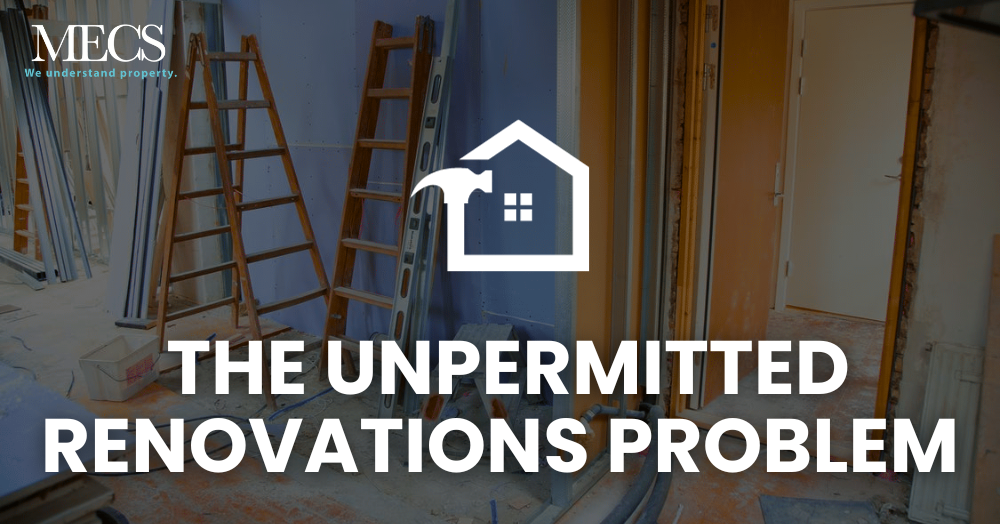Many homeowners undertake home improvements without obtaining the necessary permits, either due to lack of awareness or a desire to save time and money. However, when it comes time to sell, unpermitted renovations can create hurdles and legal issues.
Understanding Unpermitted Renovations
Before delving into the selling process, it's crucial to understand what unpermitted renovations are. Unpermitted renovations are home improvements or modifications made without the proper permits from your local council. Permits are typically required for significant changes to a property, such as structural alterations, electrical and plumbing work, and additions. Failing to obtain permits can lead to a variety of issues down the road.
Risks of Unpermitted Renovations
Selling a home with unpermitted renovations can come with several risks, including:
Legal Issues: Performing unpermitted work can result in fines, legal complications, and orders to undo the changes.
Safety Concerns: Unpermitted renovations may not meet building codes, potentially compromising the safety of the home.
Appraisal and Valuation Challenges: Unpermitted renovations might not be factored into the home's appraised value, potentially affecting the asking price.
Disclosure Obligations: In many jurisdictions, sellers are required to disclose unpermitted work to potential buyers. Failure to do so can lead to lawsuits.
Steps to Navigate the Process
If you're selling a home with unpermitted renovations, consider the following steps:
1. Identify the Unpermitted Renovations
Start by identifying the unpermitted renovations in your home. This may require the assistance of a professional inspector or contractor who can assess the work and help you determine what needs to be addressed.
2. Seek Retroactive Permits
In some cases, you may be able to seek retroactive permits for the unpermitted work. Contact your local building department to inquire about the process and requirements. It can be costly and time-consuming, but it can help rectify the situation.
3. Get Quotes for Remediation
Once you've identified the unpermitted renovations and assessed the necessary steps, obtain quotes from contractors to bring the work up to code or remove it if necessary. These quotes will help you understand the potential cost involved in resolving the issue.
4. Discuss with the Buyer
If you have a potential buyer, be transparent about the unpermitted work. Discuss your findings, the remediation plans, and any associated costs. Some buyers may be willing to work with you to address the issues, while others may walk away.
5. Adjust the Price
To compensate for the cost and hassle of dealing with unpermitted renovations, you can adjust the sale price of your home. Be prepared for negotiations and consider the market conditions in your area when determining the appropriate price reduction.
6. Work with Professionals
Engage professionals such as real estate agents, attorneys, and contractors who specialise in handling properties with unpermitted renovations. They can provide valuable guidance and ensure you navigate the process correctly.
7. Disclose Everything
It's essential to disclose all known information about unpermitted renovations to potential buyers. Failure to do so can result in legal consequences down the line.
Conclusion
Selling a home with unpermitted renovations can be a complex process, but with careful planning and transparency, you can navigate it successfully. It's essential to understand the risks, seek professional assistance, and work closely with potential buyers to find a mutually agreeable solution. By following the necessary steps and having an experience estate agent (Like
MECS) guide you through this process, you can sell your home while minimising complications and legal issues.
0121 681 6327
info@mecsproperty.co.uk

